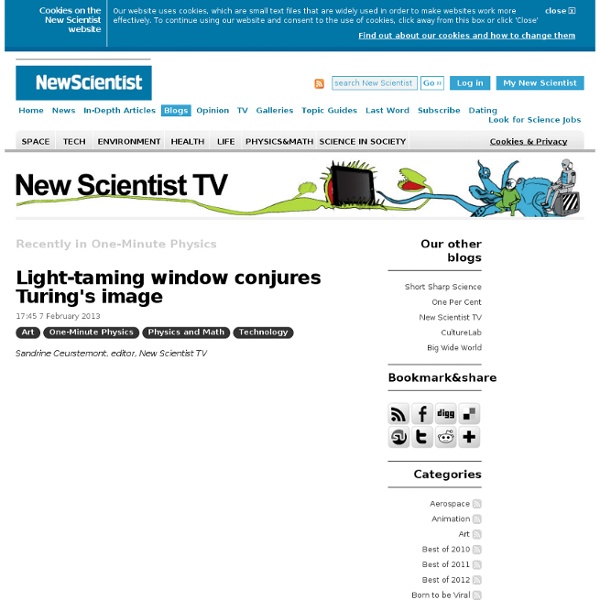One-Minute Physics archive

Nuclear Weapons - basic technology concepts [UNC]
A few words about nuclear weapons technology.. Fission weapons Nuclear weapons exploit two principle physical, or more specifically nuclear, properties of certain substances: fission and fusion. Fission is possible in a number of heavy elements, but in weapons it is principally confined to what is termed slow neutron fission in just two particular isotopes: 235U and 239Pu. Typical appearance of a thermonuclear weapon detonation -- from many miles away. *Special techniques were required to record the fleeting moments of a weapon's initial detonation.
Science, Pseudoscience, and Irrationalism
Steven Dutch, Natural and Applied Sciences, University of Wisconsin - Green Bay First-time Visitors: Please visit Site Map and Disclaimer. Use "Back" to return here. What's Here and Not Here, And Why Things on this site generally fit one of the following criteria: They're within my area of technical expertise (earth science, physical sciences, astronomy) They pertain to the general nature of science They pertain to other areas where I have personal experience (military issues) They pertain to topics where blatantly fallacious logic is involved Although there is plenty of pseudoscience related to medical fads, diets, and the paranormal, I don't deal with them much because they are outside my formal training. There are certain things I don't put here because this is a site hosted by a public institution Partisan political positions. "Respect" Every so often I get e-mails from people complaining I don't treat these topics or their believers with respect. They're right. Respect? Anti-Evolutionism
10 Strange Things About The Universe
Space The universe can be a very strange place. While groundbreaking ideas such as quantum theory, relativity and even the Earth going around the Sun might be commonly accepted now, science still continues to show that the universe contains things you might find it difficult to believe, and even more difficult to get your head around. Theoretically, the lowest temperature that can be achieved is absolute zero, exactly ?273.15°C, where the motion of all particles stops completely. One of the properties of a negative-energy vacuum is that light actually travels faster in it than it does in a normal vacuum, something that may one day allow people to travel faster than the speed of light in a kind of negative-energy vacuum bubble. One prediction of Einstein’s theory of general relativity is that when a large object moves, it drags the space-time around it, causing nearby objects to be pulled along as well. Relativity of Simultaneity This is similar to arranging tiles evenly on a floor.
Related:
Related:



